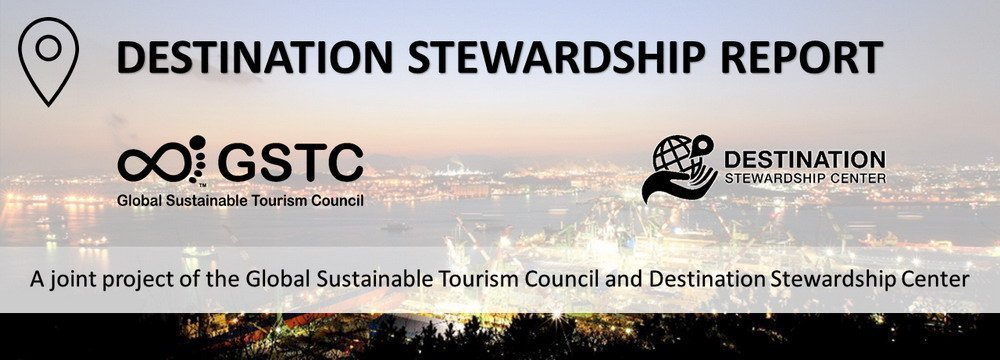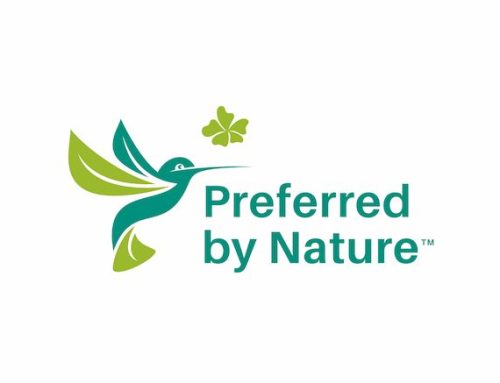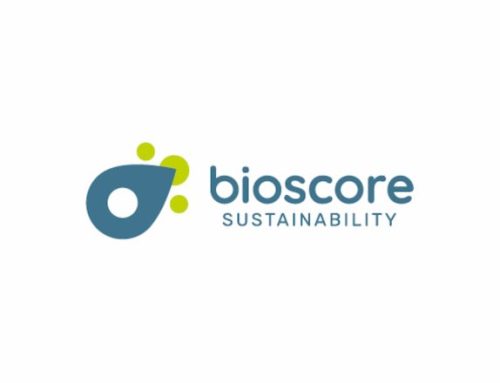Destination Stewardship Report
Summer 2020 Q3 (Volume 1, Issue 1)
Welcome to the Destination Stewardship Report. This quarterly e-newsletter is a collaboration between the Destination Stewardship Center and Global Sustainable Tourism Council, and in time maybe others. Our goal is to provide information and insights useful to anyone whose work or interests involve improving destination stewardship in a post-pandemic world. It’s an all-volunteer experiment, so its success will depend on your interest, feedback, and content contributions. Join us, and help each other.
Please subscribe to the Destination Stewardship Report here.
– Jonathan Tourtellot, Editor
GSTC’s Crucial Criterion A1: Destination Management
Its Importance by Randy Durband, CEO, GSTC
The Context by Jonathan Tourtellot, CEO, DSC
Its Importance – The GSTC Destination Criteria have well proven their value as guides to good destination stewardship. GSTC has chosen not to provide weighting to specific criteria, preferring to present a holistic system. Yet, it is natural to call out key elements. For example, . . .
The Elaborate Process of Revising GSTC’s Destination Criteria
The GSTC Destination Criteria (GSTC-D) were first developed through a stakeholder consultation process leading to their initial publication (Version 1.0) on 1st November 2013. In 2018 the first revision of the GSTC-D began. The process has taken over a year to complete, including two rounds of global public comment, with final approval reached in December 2019. GSTC’s International Standards team explains what the criteria are, what they are for, how the revision process worked, and the main changes that have resulted.
Engaging Gateway Communities for a U.S. National Park
Improving relations between a national park and its gateway communities can be tricky. They may involve touchy issues such as invasive species, extractive industries, air pollution, visitation levels and economics, even dark skies. The collaborative approach employed for North Dakota’s Theodore Roosevelt National Park yielded actionable community ideas and opened lines of communication while still upholding park conservation goals. The technique? Accentuate the positive with the approach called Appreciative Inquiry. Kelly Bricker’s University of Utah team explains how.
Anna Maria Island Offers a Model for Sustainable Stewardship
This historic holiday island on Florida’s Gulf Coast was succumbing to bland residential development with little regard for sustainability. As Anna Maria became increasingly popular with tourists, retirees, and second homes, the town was in danger of losing its past charm, historic character, and its limited commercial district on Pine Avenue. In this case, it took a visionary leader from the private sector to turn things around. David Randle sums up six lessons from Anna Maria Island.
Pine Avenue’s history reaches back more than a century. In 1911 a steamer would bring tourists from . . .
In Italy’s Dolomites, a “Future Lab” Inspires DMO Innovation
In the last five years, Dolomiti Paganella DMO in the Trentino region in northern Italy has transitioned from a fairly disorganized structure with no community support into a well-managed, prosperous, and widely-supported destination management body focused on stakeholder cooperation and sustainability. Marta Mills explains how the DMO’s innovative Future Lab initiative is now helping shape a roadmap to post-Covid19 recovery in the first part of Europe hit by the coronavirus. The region became a UNESCO World Heritage Site in 2009 because of its ‘intrinsic, exceptional natural beauty’ according to UNESCO.
Crete Needs to Restore Its Gastronomic Heritage
Culinary expert Nikki Rose says Crete has wandered far from its roots as the “Garden of Greece,” losing traditional farms, villages, and cuisine in the process. Mass tourism has been partly responsible, and sustainable tourism could help restore Crete’s traditional, organic, more ecologically suitable agricultural methods. Consumer demand for health and gastronomy is on the rise. Catering to it could help Crete restore its 4,000-year-old agricultural heritage and once-robust ecosystem. The approach called “agroecology” shows the way.
Sponsored by:


Editor – Jonathan B. Tourtellot
Newsletter design and production – Sarah Bacharach
About the Global Sustainable Tourism Council
GSTC establishes and manages global sustainable standards, known as the GSTC Criteria. There are two sets: Destination Criteria for public policy-makers and destination managers, and Industry Criteria for hotels and tour operators. The GSTC Criteria form the foundation for accreditation of certification bodies that certify hotels/accommodations, tour operators, and destinations as having sustainable policies and practices in place. GSTC does not directly certify any products or services; but it accredits those that do. The GSTC is an independent and neutral USA-registered 501(c)3 non-profit organization that represents a diverse and global membership, including national and provincial governments, NGO’s, leading travel companies, hotels, tour operators, individuals and communities – all striving to achieve best practices in sustainable tourism. www.gstc.org
About the Destination Stewardship Center
The DSC is a volunteer-driven nonprofit organization dedicated to protecting the world’s distinctive places by supporting wisely managed tourism and enlightened destination stewardship. We gather and provide information on how tourism can help and not harm the natural, cultural, and social quality of destinations around the world. We seek to build a global community and knowledge network for advancing this goal. Join us and learn more at www.destinationcenter.org.





